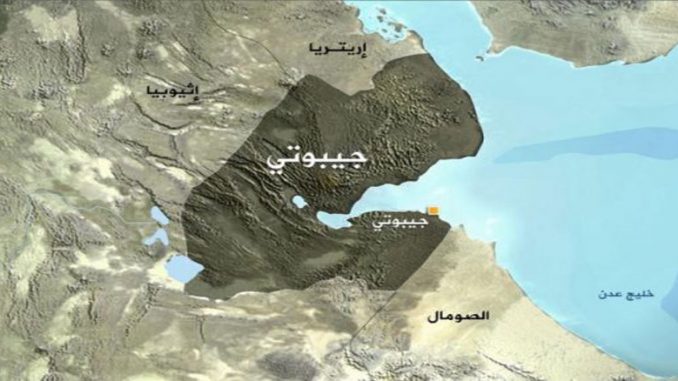
Egyptian diplomatic sources revealed that Cairo started almost a month ago moves to stop the agreement between Saudi Arabia and Djibouti to build a Saudi military base at the entrances of the Gulf of Aden.
Cairo completely rejects this agreement based on the facts that these areas lie in what is considered ‘Egyptian diplomatic influence’, and fall within Egypt’s national security zone as an Egyptian strategic depth in the far south, according to sources.
The sources said, “Egypt is worried about a Saudi-Moroccan expansion toward this particular region, particularly after King of Morocco Mohammed VI tour in a number of countries last month, notably Ethiopia which came in parallel with Saudi contacts with Djibouti to establish the Saudi military base on its territory.
The sources added that the Egyptian political leadership understands the Saudi move because of Djibouti’s strategic location on the Red Sea at the Gulf of Aden, which comes to increase the pressure cards in the light of the conflict with Iran, particularly in the war led by Riyadh against the Houthis in Yemen.
However, the source continued, this move contradicts the common rules and norms pervading among the Arab countries that those areas lie within the Egyptian diplomatic and strategic influence zones because of its direct impact on the water issue, the Nile Basin and the Suez Canal corridor.
The sources pointed out that if Saudi Arabia wanted to secure these areas and ensure that it won’t fall under the Iranian control, there is a quite understanding from Egypt of this issue, but it must be made with Egypt’s participation, presence, and supervision.
It is noteworthy that Egyptian-Saudi tension has risen recently as a result of Egypt’s divergent stances in sensitive issues to Riyadh.
Egypt has voted in favor of a Russian-backed draft resolution in the UN Security Council on Syria, which was opposed by Saudi Arabia, which angered Egypt’s major Gulf backer so much that it described Egypt’s vote as a “painful” stance.
After the voting, the Saudi ambassador to the UN, Abduallah al-Mouallimi said, “It was painful that the Senegalese and Malaysian stance was closer to the Arab’s consensus than the Egyptian delegation.” He also said that he feels pity for these countries that voted for the Russian resolution, stressing that his country will continue backing the Syrian people by all means.
Two days following the voting, Saudi state-owned oil company Aramco announced halting oil product supply to Egypt.
There were several mediating efforts to reconcile between both countries, but no indications for reconciliation appear on the horizon.
It was obvious that King Salman arrived in UAE hours after the departure of Egypt’s Abdel Fattah Al-Sisi.
The Egyptian media platforms expected before Abdel Fattah Al-Sisi traveled to the UAE that there would be a summit organized by the UAE between King Salman and Al-Sisi to put an end to the differences between the two sides, which, to their disappointment, did not happen.
Accordingly, it seems that the Saudi side is sticking to its position, especially after Abdel Fattah Al-Sisi has recently announced his support to Bashar Al Assad’s army in the Syrian conflict in his interview during his official visit to Portugal.
It also seems that media reports about Egypt’s movement to stop the establishment of a Saudi military base in Djibouti will intensify the tension between the two countries.
On the other side, Djibouti Foreign Minister Mahmoud Ali Youssef said that his country welcomed a Saudi military presence on its territory, adding that, “An exploratory visit was held by Saudi military officers to some areas in Djibouti that will host the Saudi military presence.”
He said, “Of course we agreed in principle, and we expect that we will sign this agreement in the near future.”
Djibouti foreign minister also stressed that “Djibouti felt from the beginning that cooperation with Iran would lead to much confusion , so we withdrew gradually.”
He added, “Once the attack on Yemen’s legitimacy and the Arab interests occurred, Djibouti decided to sever its relations with Tehran.”
Countries around the world race to establish military bases in Djibouti, because of its strategic geographical location as it lies on the western coast of Bab el-Mandeb Strait, linking the Red Sea and the Arabian Sea.
In this context, both the Kingdom of Saudi Arabia and China sought to enter the race in Djibouti which hosts bases for the United States of America, France, Italy, and Japan.
Renting military bases is considered one of the most important sources of revenues for Djibouti as it gains almost $ 160 million a year.
Saudi Arabia has been steadily improving its relations with African countries. One of its major recent achievements was the improving of relations with Sudan, one of the continent’s largest countries, that was for a long time an Iranian ally.



